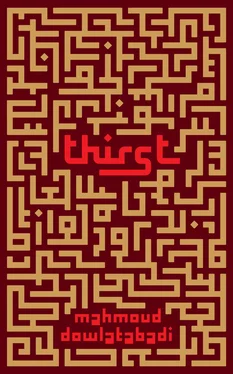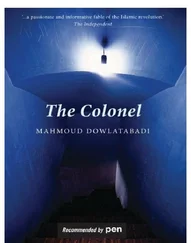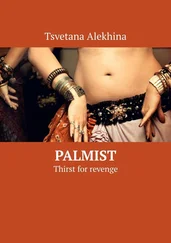THERE WERE MANY who were lost in the desert. Once lost, very few managed to escape the wasteland alive. And of those who survived, fewer still were able to explain why a person cannot walk in a straight line in the desert without a guide, without four-legged desert animals who know the way. Travelling at night in the desert is preferable for several reasons, the first being the possibility of navigating by the stars, exploiting the expertise and wisdom of the seasoned caravan leader and the leading camel. The second reason is the coolness of the desert air at night. It’s as cool and breezy at night as it is hot and unbearable during the day. So if a couple of young men — immature and inexperienced, thirsty and desperate to reach safety — should take it upon themselves to travel in the daytime without any equipment, in particular the miraculous dial of a compass, they’d have not the slightest inkling why they were failing to make any progress. A certain amount of time must pass before they collapse, totally exhausted, and suddenly realize that they have been going round and round in a very tight circle. This will only become apparent when others chance upon their trail. How can this be? Well, it’s because human legs and torsos are rarely straight and of exactly equal length. It’s impossible for a person’s legs to walk precisely symmetrically; everything depends upon the height, size, movement and joints of the individual’s body. The same goes for the hands and shoulders and waist, and the neck and head and eyes as well; they’re not at all as identical as they might appear at first glance. And that’s why one keeps going round and round in the desert. The legs go round, the eyes go round. It’s a constant turning that mirrors the mirage within your head and mind. Fatigue, thirst, helplessness and impending death — all these only multiply the likelihood of errors.
And so it was that the two young men walked round and round in circles, leaving the tell-tale trail behind them as they went. And on their circular trajectory, which would never arrive at any destination, they made every error possible. Dizziness and thirst, dumbness and muteness, illusions, mirage, fatigue and thirst all played their part. Each time they sat down to rest, they cast off what they thought were unnecessary encumbrances, totally discarding them, even their boots. Thick cotton socks may or may not have been able to save the soles of their feet from the heat of rocks and pebbles. But carrying one’s boots is surely more arduous than tolerating the burning heat of the desert floor. Ultimately, all they had on was a single shirt, underwear and socks. Maybe they draped their uniforms over their heads to prevent the rays of light from penetrating the tiny pores in their skin, lest sudden and pure madness descend … and as they went round and round, with each turn the grip of exhaustion upon them became tighter and tighter until, during the final turn, much to their amazement, the soles of their feet suddenly felt wet. This is when they dropped on their bellies on a narrow strip where the ground was damp. Each grabbed a fistful of mud and squeezed it onto his tongue. Alas, the drops of moisture that fell upon their tongues tasted oily, but they weren’t oil or petroleum. Even so, they felt compelled to stand up and follow the line of seemingly oily dampness. They pursued this path, on and on, until just before the sun went down. Sunset duly came and the mirage took on other forms. Whatever it was, it wasn’t far off, yet it still was not close enough to be in sight. By this stage, their eyesight was growing very dim. Finally … a ghostly image, possibly a mirage, came faintly into view. But it turned out to be no illusion. It really did exist. A black slab of stone — heavenly in appearance — and a lioness sitting on top of it, propped against a pile of belts, boots, articles of clothing, cartridge belts, ancient-looking weapons, helmets covered in dirt and flasks mangled into each other, missile nose-cones and empty shell casings and broken radio sets, piles of old skulls among terracotta pots and pans, and shards of old spearheads now rusty and twisted, a few ancient helmets and mangled breastplates — perhaps from an old warrior’s armour?
They approached the stone slab and stood in front of the supine lioness, who looked at them, the teats of her swollen breasts dripping with milk. She said — without speaking — what are you waiting for? For them to explode? For these breasts to explode? The pain of swollen breasts is no trivial matter. Either milk them or drink straight from them. Drink or milk them, my sons, I am that same mother lioness. Come closer to me and kneel before they explode, these breasts, and their milk is turned into blood. Come and drink, my sons. You are like my own twin cubs, who in just twelve days have aged twenty years. Drink, drink, drink, my children. Drink before the clouds rise once more to roar and rain black fire from the sky! But …
‘They’re rising. They’re rising again!’












